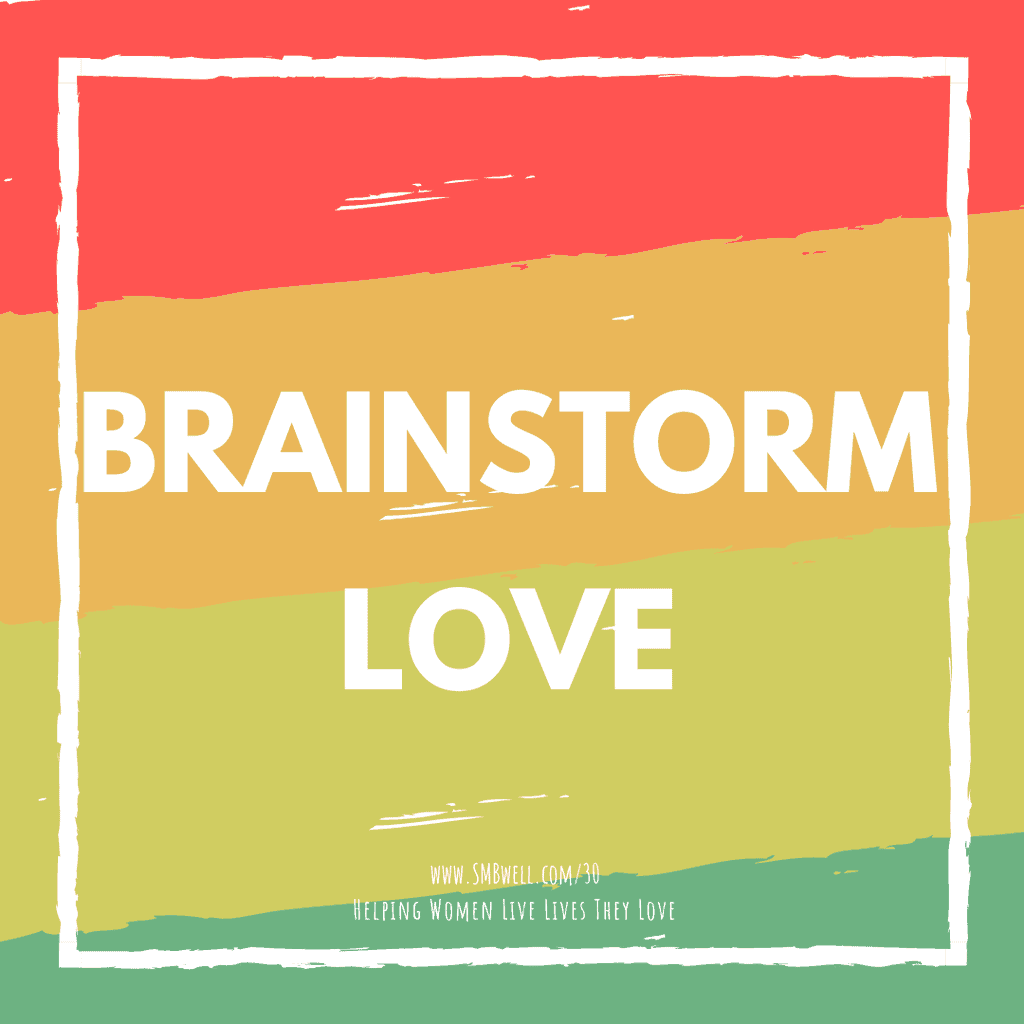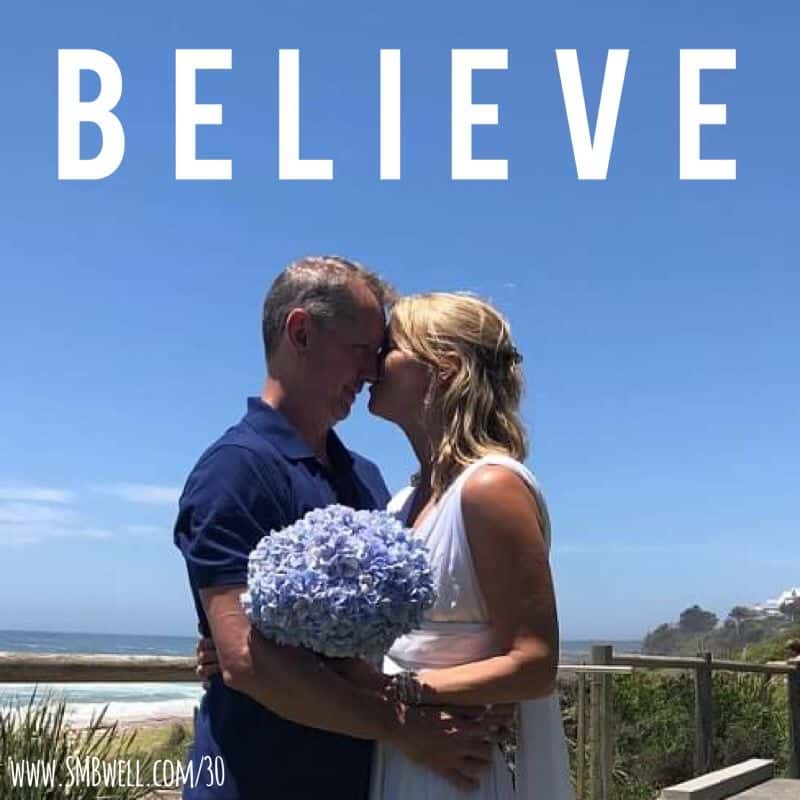Podcast: Play in new window | Download
Subscribe: Apple Podcasts | Spotify | Amazon Music | RSS | More
Last week on the show Paul and I discussed some things we do to set our relationship up for success. Relationships are complex and multilayered. They go through seasons and they require different skills at different times. Here is a sampling of tools we use to keep our love fresh and growing. We are far from perfect yet have a desire to grow together. We continue to aim for the best possible version of what we believe is possible, realizing that along the way, there will be bumps. Does that mean we jump out? Nope. We know the bumps are part of the journey. Join me as I lay out some of my favorite relationships tools that help me and my clients:
1) 1+1=3
While these tools are not in order, this tool forms the foundation of our time together. Simply put, 1+1=3 means you take care of you and let your partner take care of him/herself. When you do this, your relationship is strengthened. You take responsibility to meet your own needs and your spouse takes responsibility for his/hers. Hello Adulting 101.
This is a hard truth for us to grasp because this is not the message we hear in society. We are told that we make other people happy or upset. As a kid I was told things like: “Don’t make your dad angry” or “don’t tell him that because it will make him upset”. Go back to the podcast on emotional intelligence and the thought model because this is not how the brain works. We don’t have the ability to put thoughts in other people’s minds and so we are not responsible for how they feel. They are. And you are responsible for you.
I know we’ve all been to therapists or heard of therapy sessions where the therapist tells the spouses to share their needs so the other partner can meet them. Uh no. This is called codependency and we give away our emotional freedom when we do that. It’s like the therapists and TV shows are encouraging us to say: “Hey hon, I’m having a hard time meeting my own needs, could you take over?” Uh no. How about you take responsibility for your emotional state and let your spouse take care of his. 1+1=3 which means that he takes care of his needs (1) and I take care of my needs (1) we come together greater than the two pieces (3).
2) CCC: Clear, Concise, Communication
Communicate in a clear and concise manner. Are you like me? Do you think you know what your spouse or partner is thinking? Spoiler alert: you don’t have that skill. Humans actually can’t read people’s minds. If you have something to say, say it. Kindly for sure, but say it. Spending time thinking about “what he may think if” or “what he may do if” is a waste of your time and adds drama to relationships.
How to avoid this drama trap? Ask. Communicate. Be in relation with the other person in the relationship. Here are some things you could say:
“I’m sensing that something is going on for you. Do you want to talk about it?”
“When you came home today and did that, I made up this story in my head. What was going on?”
Instead of making up a story in your head, open your mouth and use CCC.
3) Intentional Daily Connection:
If you are in a relationship, be in that relationship. Each and every day. What does this look like? Planning something in your daily schedule to connect. I encourage you to start small and to commit to daily action. Here are some ideas and things other couples do:
-Call each other daily during lunch (eg FaceTime for 5 minutes every day at 12:15)
-Everyday before one of you leaves for work, hug for 30 seconds (research shows this aligns our heart and brain rhythms (in addition to feeling great!))
-Walk together after dinner
-Pillow talk: Share your top 3 highlights of the day before falling asleep
The more intentional you are, the more connected you will be. What do you want your relationship to be like next year this time? How about 3 years from now? 10 years? What small action can you put into your schedule today to make sure that happens?
4) Love Your Partner Unconditionally
Yep, you’re probably thinking, okay Susie, that’s easy. Of course I unconditionally love my mate. I’d like you to pause and question that. Most of us, have very conditional love for our partners. We do what I call “We love them if…” Meaning: “We love them if they parent the way we want them to” or, “We love them if they show us love the way we want them to”, or “We love them if they return our texts in a timely manner”, etc….
Sorry, that’s not what I’m talking about. Think about it: that’s conditional love. You’re putting conditions on your love.
Unconditional love is choosing to love your spouse no matter what. You actually love them no matter what. You love him whether they bring the garbage out or not. You love them whether they help you with the kids the way you want or not. You love him whether he remembers your birthday or not.
Your spouse is in your life to love. He or she is there as a companion on your journey together. I used to put a lot of conditions on my love. No fun. When I choose to love my partner for exactly who he is, how he’s showing up that day, I feel free. My mate’s only job in our marriage is to live his life exactly the way he’s living it and to be there for me to love.
5) Stop Trying To Change Your Mate:
Consider this a Public Service Announcement: Trying to change your partner does not work. I tried to change my first husband. For years. Then I tried to change my parents. I even tried to change my siblings. Here’s what I’ve learned: I am not good at changing other people. Further, do you want to know what else I noticed? People really don’t like it when you try and change them. Have you guys noticed that like when you try and change other people, they’re not like, “Yay, this will be fun. I can’t wait for you to try and change me.” Nope. People don’t want you to try to change them.
Do you know what people do want you to do? LOVE THEM! They want to be accepted for who they are. Ask yourself why you’re wanting to change the other people in your life? Your partner, your kids, your relatives? I’ll bet you’re trying to change them because you think that if they were different, you would be happier. You might even be telling yourself that if they changed and did it “your way”, they’d be happier. BS. You know what? They’ll be happier when you back off. When you love them for who they are.
I used to think things like “if they only did this, they’d be happier” or “this would be so much easier if they…” but you know what? It doesn’t work that way. People have to learn for themselves. Back off and stop pretending you’re in charge of the universe. The other people in your life are on a path and just because it’s not the one you want them to be on, it doesn’t mean it’s not the path they’re supposed to be on. Back out warrior. You miss out on the loveliness and amazingness of who you’re in relationship with is when you’re trying to change them.
6) Brainstorm Love:
This is exactly what it sounds like and magnificently follows the last tool: Take time to brainstorm all the ways you love your spouse. What do you adore about him? 
Ask yourself: what case are you making for your spouse? Do you spend more time looking for the amazingness in your spouse or the annoyances? How does that leave you feeling most days?
7) Clog or Clear?
Picture a drain. Does what you’re about to say to your spouse clear the drain or clog the drain? Paul and I will often stop mid-discussion and call ourselves out by saying: “Clog”. When I say this, what I’m telling Paul is “Yes, the conversation might have stopped abruptly but what I was about to say would’ve clogged the drain of our relationship. There’s no need to give voice to it.” I look forward to the day when I don’t even have to say “clog” but for now, it’s a great safety measure for my ego to stand down and focus on connection. Let. It. Go.
8) Mindful Tech with T.I.M.E
In partnerships, we want to feel understood. We want to feel like we matter to the other person. We want to have that other person’s attention. Yet the number one complaint I hear from couples is that they feel disconnected and misunderstood in their relationships. They don’t think their spouse understands them and they don’t feel important.
My first line of coaching is directed towards their tech use. How much of a role does their phone and computer play in the relationship? If they’re in the middle of a conversation with their spouse and their phone beeps, what do they do? Where are their phones when they’re on a date night or when eating dinner together? How often do they bring their device to bed with them? If so, why? What kind of message are you sending to your partner? What might you gain if you left your phone out of the bedroom? What might you miss out on? Usually it’s a random neighbor’s facebook update or a tweet about some nastiness in the government. What’s your priority?
I use an acronym from the book Brain Wash by Dr. David Pearlmutter that helps me direct my tech usage and will share it here in case it helps you:
Time: I get clear with how much time I want to spend on the phone
Intentional: I ask myself what I’m going to do on my phone or computer before I get on
Mindful: How am I feeling while I’m on (because that will influence my behavior afterwards when with my partner) and am I sticking with my intention?
Enriching: Does my time spent on my phone lift me up or flatten me out? Enrich me or drain me? How does what I’m looking at do for my overall life and goals?
9) Greet Your Partner Like You’re a Puppy
This is one of my favorites. Think of a puppy and how they greet you. Whether you just went out to empty the trash or you’ve been gone all day, each greeting is full of joy, surprise, delight, and excitement. I love greeting my spouse as if I’m a puppy. What this looks like is me stopping what I’m doing when he comes home to go greet him or, if I’m coming into the house, going to find him to shine some love on him. #moodlifter
10) Believe
Believe in the greatest possible version of a marriage for yourself. Ask yourself: What would the most amazing relationship 
The story I tell myself about my husband and my marriage is a love story on purpose. I direct my brain to see his kindness; to see how loving he is to our sons; to see how patient he is with me. I notice his romantic gestures, I see how he supports me, encourages me, loves me. When I choose to believe “I have a marriage unlike anything I’ve dreamed of” I look for ways that this is true. What would that couple do on weekends? On weeknights? How would they protect their intimacy? What would she say about her husband to her friends? How would she talk to her husband? Put your energies into believing you are building the relationship of your dreams and watch what happens.
Okay warriors, that’s them. 10 ways to add magic and magnificence to your relationship. You have so much power. If you’re feeling disillusioned or in a constant state of annoyance in your relationship, the great news is your actions make a difference. Choose one of these ways and you will notice a difference next week, if not today. You really are that powerful.
That said, this post is not for you if you are in an abusive relationship. As you heard on last week’s podcast episode, we have both had past relationships that were full of disfunction and abuse (emotional, sexual, and verbal). We hope this is not your current experience but if it is, please know these tools are not meant for you.
When you’re in an abusive situation, brainstorming love or greeting your partner like a puppy are some of the last things you should be doing. What to do? Reach out. Neither of us made the changes we’ve made in our life alone. We started on different paths but both of our paths included professionals to support and guide us. We didn’t know what we didn’t know. There were pieces of our abusive situations that seemed normal to us because we didn’t know differently. Please reach out to me or Paul because if our schedules are full or we are not a fit for you, we can direct you to someone who can help.
Did you enjoy this post? Please sign up for my weekly WELLNESS newsletter. It is full of fun and information designed to help YOU live a life you are in love with.






Trackbacks/Pingbacks